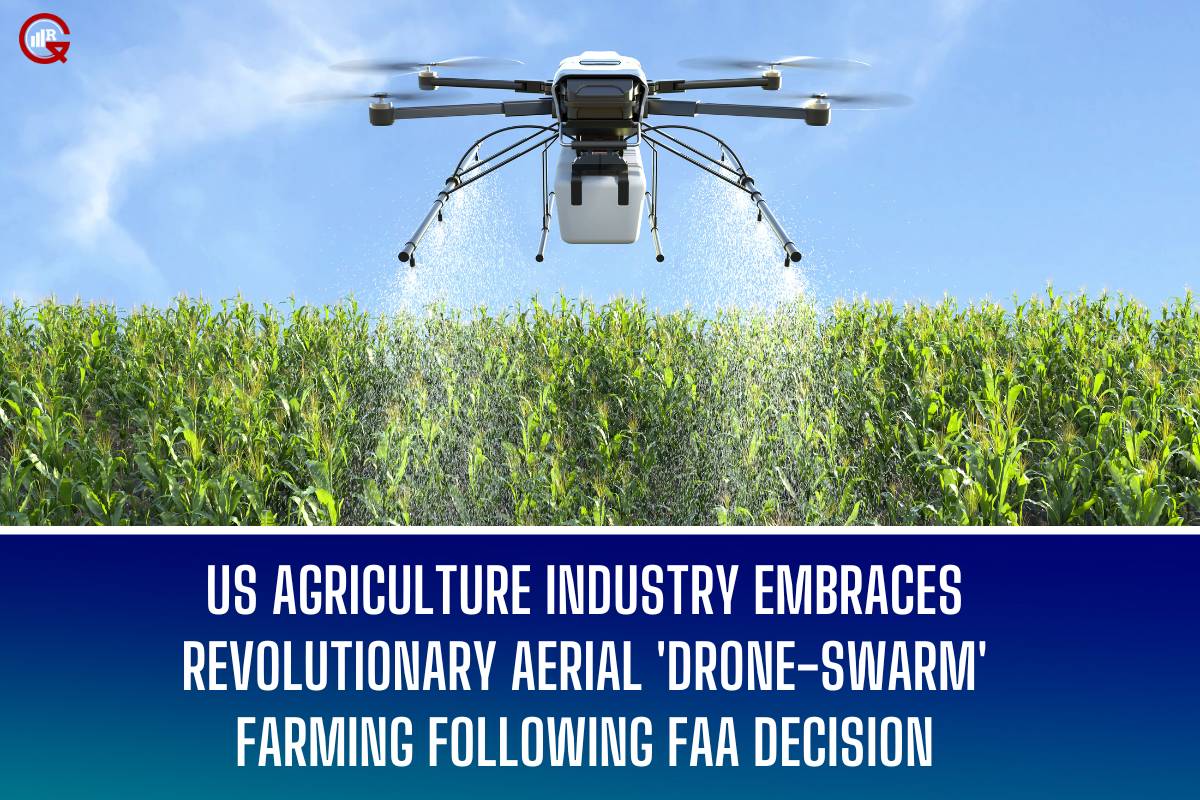The US agriculture industry is on the brink of a transformation with the advent of futuristic aerial ‘drone-swarm’ farming, as announced by Hylio, a pioneering Texas-based drone manufacturer. This groundbreaking development comes after Hylio successfully secured an exemption from the Federal Aviation Administration (FAA), permitting fleets of drones weighing 55 pounds or more to operate collectively.
This exemption marks a monumental milestone, being the first of its kind for drones carrying what Hylio describes as a “meaningful payload.” The decision not only revolutionizes farming practices but also positions drone farming as a formidable competitor to traditional tractors and seeding rigs.
Hylio CEO Highlights Benefits of Drone-Swarm Farming Amid FAA Exemption
Arthur Erickson, CEO of Hylio, lauded the cost-effectiveness and efficiency of drone-swarm farming. He revealed to Fox News Digital that the capital and operational costs of drone fleets are significantly lower compared to traditional machinery, with savings amounting to a quarter or even a third of the expenses. Even a set of three drones proves to be more economical than a single tractor. Furthermore, drones require less water for chemical dispersal, resulting in reduced soil compaction, and consume only a fraction of the fuel needed for generators to recharge batteries, all while Hylio offers its software free of subscription charges.
Previously, stringent regulations mandated a pilot and a spotter for each drone, and weight limitations hindered swift coverage of vast fields. However, the recent FAA exemption allows a two-person team to operate up to three drones simultaneously in a coordinated ‘swarm,’ expanding coverage area threefold and rivaling the speed of conventional tractors. Andy Kreikemeier, a Nebraska farmer, attested to the operational efficiency of drone-swarm farming, noting the reduction in personnel requirements and increased coverage timeframe.
Affordable Drone Technology Redefines Agriculture and Beyond
With drones priced at around $50,000 per unit, significantly less than the hefty investment required for conventional tractors, the economic appeal of drone farming is evident. Kreikemeier shared that he acquired fully-loaded drones from Hylio at approximately $80,000 each, a fraction of the cost of a traditional tractor. Erickson highlighted the versatility of drones, emphasizing their applications beyond farming, including reforestation efforts in wildfire-stricken areas and seeding operations in aquatic farming.
The implications of aerial ‘drone-swarm’ farming extend far beyond the agricultural landscape, heralding a new era of efficiency, sustainability, and innovation in food production. As Erickson aptly remarked, “The sky’s the limit” for the transformative potential of drone technology in agriculture and beyond.






